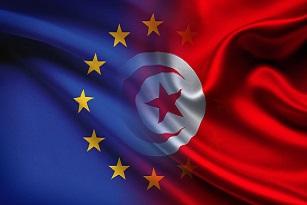
Check against delivery!
Dear Madam President, Honourable Members of this House,
Thank you for this exchange on the political developments in this important partner and close neighbour for the European Union. It falls very timely in the run-up to the 17 December legislative elections, a key appointment for Tunisia in this delicate transitional period.
We know that political transitions are challenging. The one that the Tunisian people started in 2011 makes no exception. This is why the European Union considers crucial to continue to side with the Tunisian people, as we have been doing during the past decade, not only economically, but also politically.
At the same time, our support has been based on shared principles and values that the Jasmin Revolution brought along. We firmly believe that the Tunisians want to preserve these values.
For this reason, the European Union has not hidden its apprehensions regarding some of the measures taken in the past few months in Tunisia. Our message has been very clear since the beginning, privately and publicly when needed.
As High Representative/Vice-President [Josep] Borrell stated in the declarations on behalf of the European Union in the past months, the respect of democratic acquis, the rule of law, the separation of powers and the respect of fundamental rights and freedoms are paramount. We remain convinced that these are essential for the success of any political process and the long-term prosperity of Tunisia.
We are also very sensitive and attentive to the hard time that Tunisia is experiencing economically. The Russian aggression against Ukraine is having a heavy impact on all. But there is no doubt that the Tunisian economy is among those paying the highest toll in terms of food and energy security. And this adds to the damages resulting from the COVID-19 pandemic.
This is why, the European Union is determined to continue to support the Tunisian people in these challenging economic context. And we remain ready to accompany them in the substantial and difficult, yet needed structural reforms they will have to undertake.
We welcome the staff-level agreement between the Tunisian authorities and the International Monetary Fund (IMF) to support Tunisia’s economic growth, job creation and macro-economic stability.
The European Union stands ready to contribute to this programme and the overall stability of Tunisia, including through a rapid disbursement of the next tranche of our budget support of €40 million and consideration of a new macro-financial assistance.
We are hopeful that the Tunisian people and authorities will make the wisest choices for the future of Tunisia, which can only happen as a result of inclusive dialogue and counting on a large consensus.
On our side, the European Union institutions, together with our Member States, will remain committed to find the most appropriate means to continue supporting Tunisia in this difficult but crucial time. This includes ways to express our concerns as necessary, always with constructive criticism, which we consider to be the most effective form of dialogue with partner countries.
Thank you very much for your attention.
Link to the video: https://audiovisual.ec.europa.eu/en/video/I-231544
Closing remarks
Dear President, Honourable Members,
The debate today showed large consensus to remain committed to a strong partnership with Tunisia.
We are well aware of the challenging circumstances the country is experiencing and of the importance of [the] choices of Tunisians in these delicate times, both politically and economically.
As High Representative/Vice-President [Josep] Borrell has repeatedly mentioned, we will continue to be attentive to the developments and to pass all the important messages, clearly but constructively, with the joint objective to see a sustainable future for this important partner.
Thank you.
Link to the video: https://audiovisual.ec.europa.eu/en/video/I-231546
Details
- Publication date
- 19 October 2022
- Author
- Directorate-General for Neighbourhood and Enlargement Negotiations
